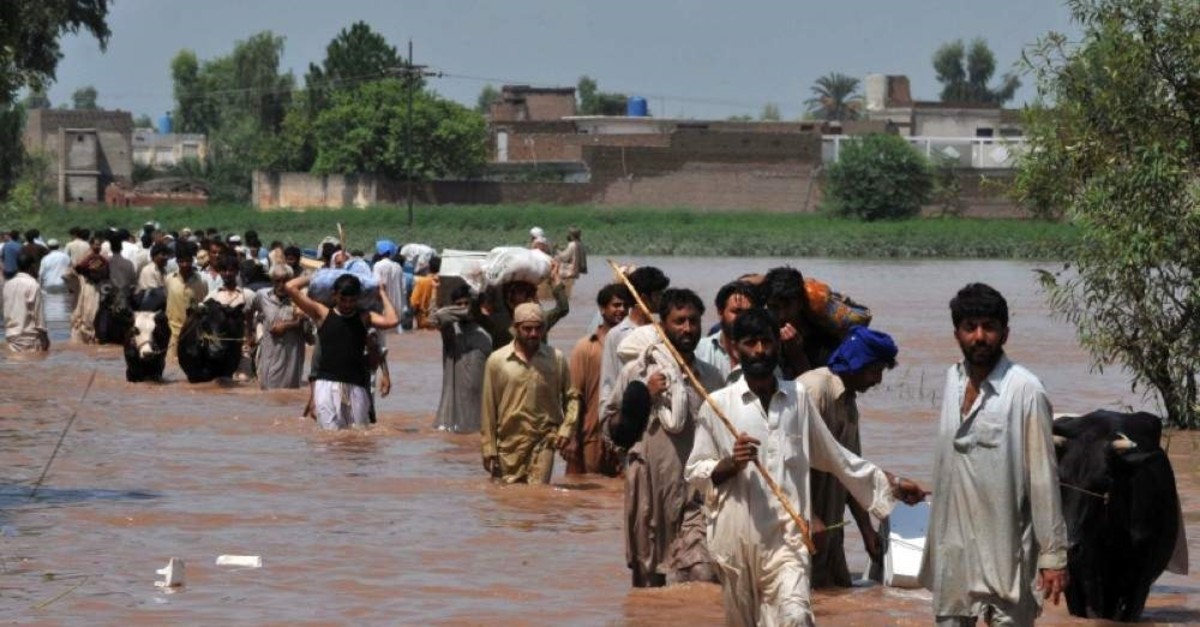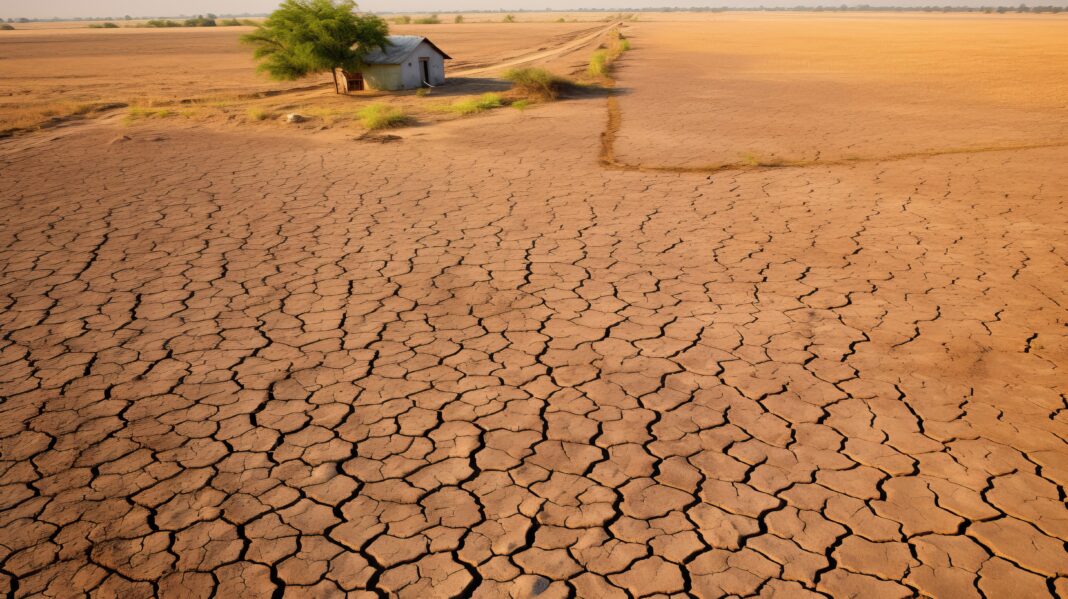“Global warming should be seen not as an environmental crisis but as a human rights issue that risks the lives and livelihoods of millions.” Former Maldives President Mohamed Nasheed’s Progression of CC-related catastrophes appears as Super Storm Sandy, devastating floods in Pakistan, Ethiopia’s dry season, and Europe’s heat waves.
We are the first generation to witness the early warnings of climate change and the last one to possibly prevent it from happening. Our planet is suffering from the effects of climate change, such as increasing floods, melting glaciers, frequent heat waves, the vanishing of wildlife, changes in agriculture patterns, extreme weather conditions, and many more. Several developing countries are most affected by these changes.
Role of human activities in climate change
According to experts and earth sciences professionals, human activities are a major cause of climate change. These activities include complex interactions with the natural environment, due to which global temperature increases and climate changes happen. Burning of fossil fuels causes the release of carbon dioxide in the atmosphere which contributes majorly in increasing Earth’s temperature.
Greenhouse gases (GHG) disturb our planet’s energy balance, which alters incoming and outgoing solar radiation. Cutting down forests to accommodate the increasing world population is another big factor that affects the earth’s climate and temperature. This causes altered rain patterns, which in turn causes droughts and floods. Since the last few years, Pakistan has been suffering from floods almost every year.
Climate change policies in Pakistan
Pakistan has made efforts to deal with climate change through comprehensive policies and determined actions for environmental justice. The National Climate Change Policy (NCCP), formulated in 2012, is a guiding document for developing a sustainable environment. The policy measures address various issues in different sectors, including agriculture, water, forestry, biodiversity, ecosystems, and coastal areas.
Pakistan has made policy principles for mitigating climate change, which include reducing greenhouse gas (GHG) emissions, strategies for energy conservation, and measures to deal with massive losses caused by floods and droughts. Moreover, the 2021 updated version of NCCP underscores the government’s projects related to climate change, such as the “Ten Billion Tree Tsunami Programme”, “Clean Green Pakistan Movement’’, “Urban Forest Project’’, and “Protected Areas and National Parks Initiative’’.

National Adaptation Plan
The National Adaptation Plan (NAP), proposed on July 16, 2023, highlights the significance of adaptation strategies to minimize risk and build resilience to climate change and environmental safety. The strategies include infrastructure development, adaptive capacity enhancement, community-based initiatives minimizing vulnerability, and early warning signals. The NAP also aims to enhance the efficiencies of local communities to protect themselves and their environment by providing them with green jobs, technological advancements, and effective partnerships between the government, private sector, and civil society.
Challenges in the implementation of policies
Significant progress has been made to protect the environment from the hazards of climate change, but Pakistan still faces challenges in their implication. Insufficient financial resources, obstructive institutional capacities, and governance challenges constitute barriers to effectively implementing the policies.
Several other challenges obstruct the proper implementation of climate change policies, which include lack of awareness, poor Climate literacy, limited availability of expertise, lack of political commitment and will, lack of responsibility acceptance, and lack of public involvement in resolving the issues related to climate change.
Pakistan is a democratic country, its administrative authority lies with the political executives. The lack of political commitment is a big hurdle in implementing climate change policies. Political personnel are not prioritizing the progress in solving climate change issues.
The implementation of the National Climate Change Policy requires the capacity and efficiency of the institutions involved in it. Lack of institutional capacity and strength offers resistance to implementing the policies. The capacity of institutions needs to be looked at both in terms of institutional setup and human resources.
Inadequate technical expertise and political involvement of expertise are other challenges in implementing climate change policies. Specialized skills and knowledge are required for climate change problems, but there is a lack of skillful staff in administration and institutions.
The implementation of climate change policies is not just limited to governance and administration; rather, there is also a need to disseminate awareness among the general public. Climate literacy should be encouraged through awareness campaigns, training, and inclusion in the educational curriculum. Moreover, the collaboration between research and policymakers is mandatory.

Pakistan’s efforts for environmental justice
Developed countries like China, the US, the UK, and other European countries have made major contributions to climate change since the end of the industrial revolution. They are the major culprits of the emission of greenhouse gases into the environment and increasing global temperature.
Developing countries like Pakistan have a negligible role in climate change. They are being suffered by the impacts and costs of climate change unfairly. Thus, industrialized nations should help developing countries with climate finance to repair the losses and damages caused by the activities of developed countries. It is the reparatory right of the developing countries.
Pakistan has formulated a National Climate Change Policy (NCCP) and addressed climate change in international forums. Pakistan raised the issue of environmental justice in 2022 at the Conference of the Parties (COP) 27, which was held in Sharm El-Sheikh, Egypt. After 2022’s flood, its climate change minister, Sherry Rehman, participated in COP27 and said:
“We are on the frontline and intend to keep loss and damage and adapting to climate catastrophes at the core of our arguments and negotiations. There will be no moving away from that.”
The 2022 flood in Pakistan caused extreme havoc, submerging almost a third of the country. It resulted in an estimated $14.9 billion in damages, $15.2 billion in GDP loss, and $16.3 billion in rehabilitation needs. Pakistan’s caretaker Finance Minister, Dr. Shamshad Akhtar, at Pakistan Climate Conference 2023, mentioned that Pakistan needs $340 billion over the next seven years to deal with climate change, with nearly $200 billion required for adaptation and $140 billion for mitigation efforts.
All this money should come from developed countries as climate finance. Nabeel Munir, the chief negotiator of the COP27, stated: “Loss and damage is not charity; it’s about climate justice.”
According to the United Nations Framework Convention on Climate Change (UNFCC), climate finance is the legal right of the climate-vulnerable countries. Paris Agreement is the important treaty of this Convention. Article 9(1) of the Paris Agreement states:
“Developed country Parties shall provide financial resources to assist developing country Parties for both mitigation and adaptation in continuation of their existing obligations under the Convention.”
References:
- Hussain, S., Raja, I. & Mehsud, M.I. (2020). Challenges to the Implementation of National Climate Change Policy of Pakistan. International Journal of Political Science and Development, 8(6), 199-208. DOI: 10.14662/IJPSD2020.125
- IPCC, 2007: Climate Change 2007: The Physical Science Basis. Contribution of Working Group I to the Fourth Assessment Report of the Intergovernmental Panel on Climate Change [Solomon, S., D. Qin, M. Manning, Z. Chen, M. Marquis, K.B. Averyt, M.Tignor and H.L. Miller (eds.)]. Cambridge University Press, Cambridge, United Kingdom and New York, NY, USA.
- Lakahni, N. (2022). ‘We couldn’t fail them’: how Pakistan’s floods spurred fight at Cop for loss and damage fund. The Gaurdian. https://www.theguardian.com/environment/2022/nov/20/loss-and-damage-pakistan-flooding-climate-justice-cop27
- Mirza, A. M. (2020). Environmental rights and case of climate justice in Pakistan. Strategic Studies, 40(2), 45-62.
- NCCP Report. (2021). Ministry of Climate Change and Environmental Coordination. https://mocc.gov.pk/SiteImage/Policy/NCCP%20Report.pdf
- Shakeel, A. (2023). A closer look: Pakistan’s climate strategy beyond conferences. Dawn. https://www.dawn.com/news/1799425
- Framework for Implementation of Climate Change Policy (2014-2030). Government of Pakistan, Climate Change Division, Islamabad, Pakistan. http://www.gcisc.org.pk › Framework for Implementation of Climate Change
More by this author: Stem Cells— A Hallmark in the Treatment of Neurological Disorder
Eman Fatima is an M.Phil student at the National Center of Excellence in Molecular Biology, University of the Punjab, Lahore. She completed her Bachelor in Biochemistry from Government College University Faisalabad. She has a deep passion for research on the molecular foundation of life and aims to communicate it through writing on the Scientia Magazine.

